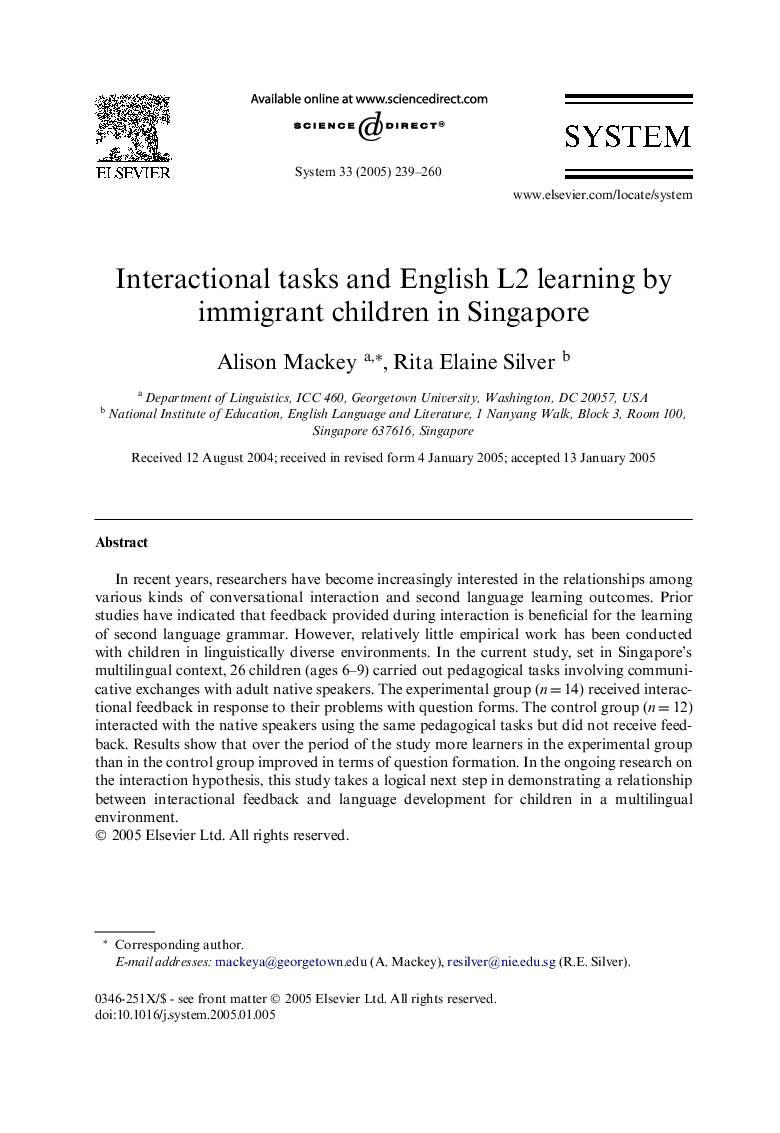| Article ID | Journal | Published Year | Pages | File Type |
|---|---|---|---|---|
| 10319039 | System | 2005 | 22 Pages |
Abstract
In recent years, researchers have become increasingly interested in the relationships among various kinds of conversational interaction and second language learning outcomes. Prior studies have indicated that feedback provided during interaction is beneficial for the learning of second language grammar. However, relatively little empirical work has been conducted with children in linguistically diverse environments. In the current study, set in Singapore's multilingual context, 26 children (ages 6-9) carried out pedagogical tasks involving communicative exchanges with adult native speakers. The experimental group (n = 14) received interactional feedback in response to their problems with question forms. The control group (n = 12) interacted with the native speakers using the same pedagogical tasks but did not receive feedback. Results show that over the period of the study more learners in the experimental group than in the control group improved in terms of question formation. In the ongoing research on the interaction hypothesis, this study takes a logical next step in demonstrating a relationship between interactional feedback and language development for children in a multilingual environment.
Keywords
Related Topics
Social Sciences and Humanities
Arts and Humanities
Language and Linguistics
Authors
Alison Mackey, Rita Elaine Silver,
